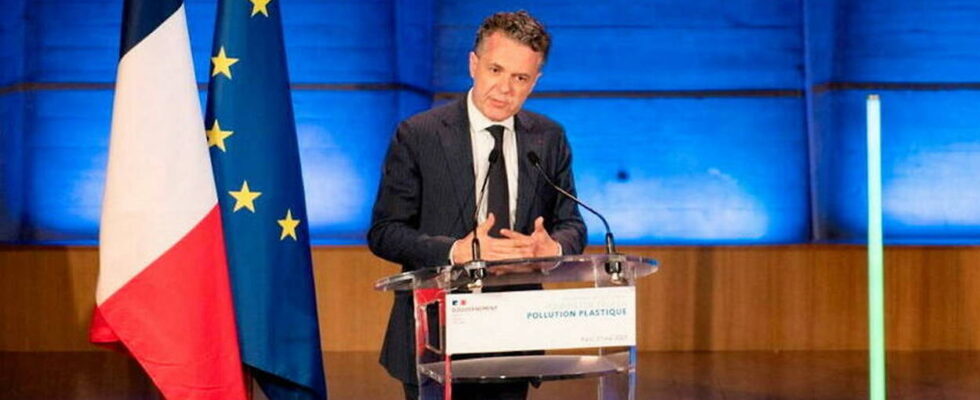IMinisters or representatives of around 60 countries are debating solutions to the global plastic crisis at Unesco on Saturday, a summit organized by France to give impetus to the delicate negotiations on a future global treaty which resume on Monday in Paris .
“Plastic is in nature and now it is in our lungs, so it is high time to stop this invasion, first by stopping the growth of plastic production,” said Foreign Minister Catherine Colonna ahead of the debates. In particular, we must “eliminate single-use plastic […] it is 40% of world production that is frankly useless,” she added.
Discussions on Saturday morning focused on “the production, consumption and sustainable use of plastics to achieve a circular economy”. The afternoon should be devoted to the “rational management of plastic waste” and the prevention of their release into the environment.
READ ALSOWhat if Total got into the nuclear business?
But “we must be careful that the question of recycling does not replace the debate on the reduction of the production of plastics”, added the Minister of Ecological Transition Christophe Béchu.
Today, two-thirds of the world’s production goes to waste after just one or a few uses and less than 10% of plastic waste is recycled. But annual production, which has more than doubled in 20 years to reach 460 million tonnes (Mt), could still triple by 2060 if nothing is done.
“If we increase our recycling rates, but at the same time we increase our production, we will have gone backwards in solving the problem. So, firstly, we reduce, secondly, we increase the recycling share,” added the minister.
READ ALSOClimate and cows: when the Court of Auditors puts its feet in the dish
Ambitious goals
His remarks refer to the objective of “reducing use and production” put forward by the most ambitious countries (a coalition of 55 countries led by Rwanda and Norway, including the European Union, the Canada, Chile and, since Friday, Japan and Gabon).
This objective is also hammered home by NGOs and scientists. But other nations, on the side of Asia (China and India in particular) or the United States, are more reluctant and insist above all on recycling and the fight against waste abandoned in nature.
“The strongest evidence shows that reducing production will be key to solving the problem,” said Richard Thompson, a member of the Coalition of Scientists for a Successful Plastic Process.
The minimal share of recycling is also explained because “few products have been designed with a view to a circular economy”, he explained, recalling the need to “redesign the design of materials”.
READ ALSOHow Nantes is preparing for its great “ecological bifurcation”
Zero waste in 2040?
A little over a year ago in Nairobi (Kenya), 175 countries reached an agreement in principle to end plastic pollution in the world with the ambition to develop a legally binding treaty by the end of 2024. under the aegis of the United Nations.
After initial technical negotiations at the end of 2022 in Uruguay, Paris is hosting the second session of the five scheduled from Monday to Friday.
Governance issues have so far dominated the exchanges, but the five days of discussions should make it possible to outline the main orientations, even a first draft of the text.
READ ALSOClimate: what about Macron’s “European regulatory break”?
The stakes are high as plastic, derived from petrochemicals, is everywhere: packaging, clothing fibers, construction equipment, medical tools… Waste of all sizes is found at the bottom of the oceans, in the ice floe, stomachs of birds and even on top of mountains. Microplastics have been detected in blood, breast milk or placenta.
Plastic is also a problem for its role in global warming: it represented 1.8 billion tonnes of greenhouse gases in 2019, 3.4% of global emissions, a figure which could more than double by 2060 according to the OECD.
In April in Japan, the G7 set the goal of reducing plastic emissions into the environment to zero by 2040.
